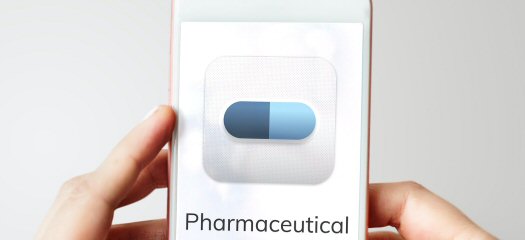 Getting a drug on the market is no easy feat; an enormous
amount of research, development, and trials are only
quantitative markers of the process a new medication
must undergo before gaining the clear for distribution
by healthcare professionals. One would hope that, at
the least, a research team that has advanced a drug
to clinical trials wouldn't have to fret over putting
together the trial, but a common difficulty in gathering
participants for clinical trials has made this far from
the reality for many medical researchers. However, texting
may offer a solution. Getting a drug on the market is no easy feat; an enormous
amount of research, development, and trials are only
quantitative markers of the process a new medication
must undergo before gaining the clear for distribution
by healthcare professionals. One would hope that, at
the least, a research team that has advanced a drug
to clinical trials wouldn't have to fret over putting
together the trial, but a common difficulty in gathering
participants for clinical trials has made this far from
the reality for many medical researchers. However, texting
may offer a solution.
At first glance, it may not make much sense that rounding
up participants for research trials would present such
an obstacle. However, many who consider participating
in trials of drugs not yet on the market hesitate due
to unvoiced concerns, and the steps leading up to the
trial can be tedious, resulting in a surprisingly high
proportion of dropouts among clinical trial participants
of about two thirds.
The process of successfully locating and recruiting
from a pool of oft-hesitating potential participants
is also an expensive one. And even when researchers
have garnered enough participants, managing all their
information represents a tedious, time-consuming hurdle.
In short, recruiting subjects is a far greater difficulty
and expense than it should be for medical researchers.
Texting might hold the solution to these woes. By allowing
potential participants to demonstrate interest via text
message, trials might be more likely to garner greater
interest, as many are more inclined to send a quick
text message than to follow through with making a phone
call or writing out an email. After all, most people
worldwide now own or have access to mobile phones. Advertisements
encouraging people to text a specified keyword to a
given number in order to demonstrate interest could
be placed in strategic or oft-visited locations, like
hospital waiting rooms or on public transportation,
presenting a lower-effort mode of recruitment.
Using this sort of system also offers the benefit of
making the recruitment process more automated. If potential
participants express their interest in the trial via
a text message, their text can initiate the process
of verifying the patient's eligibility; patients can
automatically begin to receive text messages asking
simple, multiple choice questions about the requirements
for a given trial's participants to ensure that they
are eligible. By potentially automating this processing,
texting spares researchers labor hours they might spend
screening prospective participants.
Using text messaging in this way also promises ease
later in the recruitment process, when reaching out
to patients individually becomes too time-consuming.
With texting, researchers can structure and automate
outreach by dividing the pool of patients by their data
and scheduling different text messages to different
pools. In this way, researchers can better target texts
to patients based on information like their availability.
This approach would speed up outreach throughout the
recruitment process and reduce the amount of human labor
hours needed, representing a reduction in time and money
spent.
Texting could also help assuage the doubts of patients,
reducing dropout rates. Many patients drop out of a
study before it even begins because of doubts or fears,
and reaching out to every patient and addressing each
one's concerns individually demands more time than researchers
can spare. In order to retain volunteers and time, researchers
could prepare text messages addressing common worries
or offering more information about the trial that could
be automatically sent to patients who express relevant
concerns. Additionally, texting is a more immediate,
comfortable medium for most than calling or emailing,
which may cause more people to voice their concerns
to the research team than to quietly drop out.
While there is limited research on the efficacy of
texting as a recruitment device, the potential it holds
to expedite and enhance recruitment for clinical trials
is promising and exciting for medical research.
About the Author -
Sharon Housley is the VP of Marketing for NotePage,
Inc. a software company for communication software solutions.
http://www.notepage.net
|
